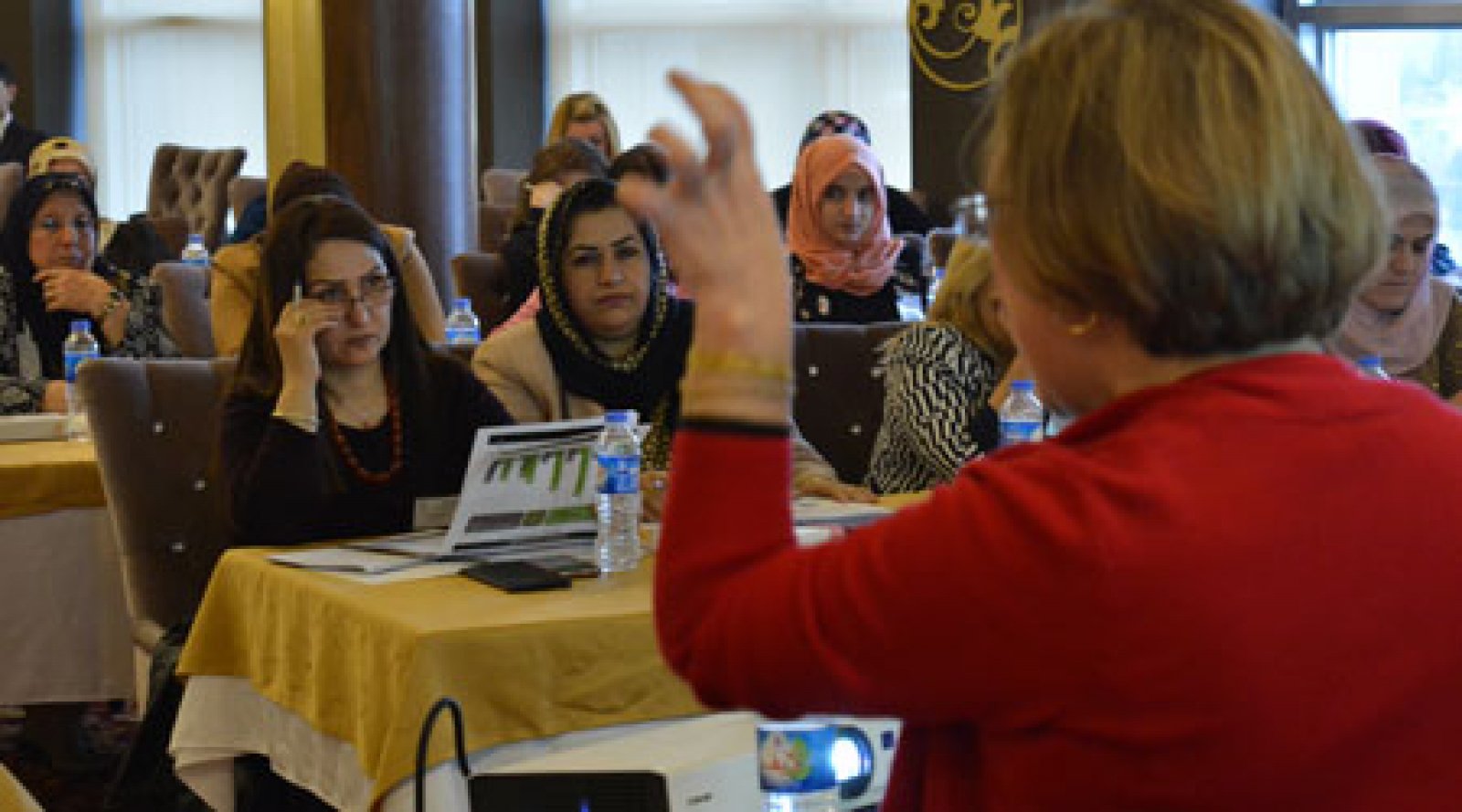
SHARE
NDI released new public opinion research, which reveals a clear path forward for Iraq’s road to reconciliation. The research, which is the result of 22 in-depth interviews with Iraqi leaders and a nationwide survey of 2,200 citizens conducted between December 12, 2015 and January 8, 2016, points to the need for Iraq’s politicians and governing institutions to work together to forge a shared vision for the country. Iraqis largely agree on four areas of potential collaboration across political and sectarian divides, including adopting an achievable plan to fight corruption, ensuring a fair judicial process, strengthening the economy, and ending sectarian quotas for government positions and jobs.
More than 90 percent of respondents judged reconciliation to be somewhat or very important to the future of the country. They prioritized the need to promote reconciliation among political parties and leaders, and saw it as a bigger obstacle than both falling oil prices and the fight against Da’esh (also known as the Islamic State, ISIS or ISIL). “The results are definitive: reconciliation can be advanced if leaders develop policies that represent all of Iraq’s citizens,” NDI’s Senior Resident Country Director Lisa McLean said. “This research can help point the way forward.”
Despite numerous reconciliation attempts at both party and tribal levels, sectarian conflict and strife persist. Inclusive governance and consensus building are essential elements of a successful reconciliation process, and Iraq’s leaders require evidence-based research to move this long-delayed process forward. Targeted consultations by NDI staff on the research findings help to inform decision-makers and enhance their abilities to craft a strategic vision for reconciliation. These steps strengthen the government of Iraq’s ability to respond to the needs of the Iraqi people both centrally and at the local level.
Concerns about progress on key issues, such as security, corruption, unemployment, and services, have driven public opinion to new lows. A mere 10 percent of respondents thought the country was headed in the right direction -- a sentiment shared in the autonomous Kurdish region, where only 32 percent of respondents thought Kurdistan was headed in the right direction. In part, increased pessimism is driven by concerns among Iraq’s minority Sunni community that they are being marginalized by the current government. But citizens from across the spectrum worried about worsening sectarianism, deteriorating relations between political blocs, and the ever-tenuous relationship between Erbil -- the capital of Iraqi Kurdistan -- and Baghdad.
NDI’s research revealed the prominent role that identity plays in attitudes towards reconciliation. Those that identify first as Iraqis -- overwhelmingly Sunnis and Shia -- were far more open to reconciliation measures. An undercurrent of societal tensions, however, poses a significant challenge to reconciliation efforts. A majority of Kurds and Sunnis did not feel fairly treated by society and the government, and 39 percent of Sunnis reported having personally experienced discrimination. Although Iraqis were split by religious sect about which political figures divide or unite the country, a plurality agreed that both Iraqi politicians and the international community are contributing to the further division of the country.
 Iraqis agree on four areas of potential collaboration, which can be used to push the reconciliation process forward.
Iraqis agree on four areas of potential collaboration, which can be used to push the reconciliation process forward.With 47 percent of respondents claiming that Iraq is a mostly divided country, the need to link issue-based concerns to reconciliation efforts is vital -- and NDI’s research points to broad areas of consensus. Iraqis overwhelmingly identified several key reforms as the most effective mechanisms to push reconciliation forward: adopting an achievable plan to fight corruption effectively (92 percent); ensuring a fair judicial process (89 percent); strengthening the economy (88 percent); and ending sectarian quotas for government positions and jobs (88 percent).
According to NDI’s research, a clear reconciliation plan should focus on core points including:
-
forging a process that is driven by Iraqis for Iraqis;
-
developing clear, concise messages and milestones that define a plan and is enshrined in the notion of “One Iraq” or a “United Iraq;”
-
engaging the public, addressing the frustrations of protestors, and focusing on Iraq’s political actors; and
-
developing separate strategies to address Shia-Sunni and Arab-Kurd issues.
“Iraqis have spoken,” NDI’s Lisa McLean said. “They want to see concrete outcomes that matter to their daily lives.” NDI’s programs provide members of parliament, parliamentary staff, and political party members with the skills to develop and advocate for issue-based solutions to Iraqis’ concerns.
Although Iraqis share a strong desire for reconciliation, the road ahead will be fraught with challenges. The ultimate success of any reconciliation process is tied to continued progress through transparency and outreach to citizens by political institutions, and the building of political will to create more inclusive and responsive governing bodies.
NDI’s research was conducted in partnership with Greenberg Quinlan Rosner Research and funded by the U.K. Foreign Commonwealth Office.
Published February 25, 2016



